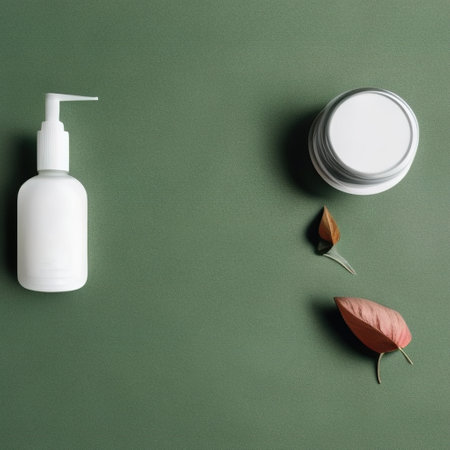Introduction: Facing Up to Plastic Waste in UK Beauty
In recent years, the issue of plastic waste has become impossible to ignore, especially within the UK’s beauty industry. From shampoo bottles and skincare tubs to mascara wands and sheet mask wrappers, plastic is everywhere on our bathroom shelves. According to recent studies, it’s estimated that the UK produces over 120 billion units of cosmetic packaging each year, much of which ends up in landfill or polluting the environment. This mounting crisis has prompted both brands and consumers to rethink their approach to beauty. British shoppers are increasingly aware of their environmental footprint and are demanding more eco-friendly alternatives from their favourite high street and luxury beauty labels. Sustainable packaging is now seen as a key factor when choosing which products to buy, with many Brits willing to pay a premium for greener choices. The table below highlights some key statistics illustrating why sustainable packaging matters so much in the UK today:
| Plastic Waste Fact | UK Impact |
|---|---|
| Annual cosmetic packaging waste | 120+ billion units |
| Percentage of packaging recycled | Less than 12% |
| Consumers willing to pay more for sustainable packaging | Over 60% |
This growing concern isn’t just about looking good—it’s about doing good too. As we move forward, the pressure is on UK beauty brands to innovate and lead the way in reducing plastic waste through smarter, more sustainable packaging solutions.
Pioneering Packaging: Home-Grown Sustainable Solutions
When it comes to sustainable packaging, British beauty brands are truly making waves. Not only are they embracing eco-conscious ideals, but theyre also leading the charge with innovative solutions that resonate with UK consumers growing desire to reduce plastic waste. From refillable systems you can pick up in your local Boots, to compostable pots and recycled plastics sourced from the British Isles, these home-grown companies are setting new standards for the industry.
Refillable Systems: The New Normal
Gone are the days when buying a new moisturiser meant throwing out yet another plastic pot. Many UK brands now offer stylish refill stations or subscription services that let you top up your favourite products, cutting down on single-use packaging. Take a look at some standout examples:
| Brand | Refillable Product | Where to Refill |
|---|---|---|
| Lush | Shampoo Bars & Body Lotions | In-store nationwide |
| Beauty Kitchen | Cleansers & Serums | Sainsbury’s & online return scheme |
| The Body Shop | Shower Gels & Hand Washes | Select high street stores across the UK |
Compostable & Biodegradable Materials
Another area where British brands excel is the use of plant-based and biodegradable materials. These innovations help ensure that packaging returns safely to the earth instead of lingering in landfill sites. Brands like UpCircle Beauty use fully compostable sachets and cartons made from recycled coffee cups, while REN Clean Skincare has introduced bottles made from ocean-bound plastics collected along British coastlines.
Why This Matters to UK Consumers
The move towards sustainable packaging isn’t just good PR; it’s something more and more Brits genuinely care about. According to recent studies, over 60% of UK shoppers say they prefer to buy beauty products from brands taking real action on sustainability. By championing these home-grown solutions, British beauty brands aren’t just reducing their carbon footprint—they’re giving us all a chance to make greener choices in our daily routines.
![]()
3. Local Collaboration: UK Suppliers and Circular Economy Schemes
One of the most promising strategies for reducing plastic waste in the UK beauty industry is the emphasis on local collaboration. By forging partnerships with local suppliers and engaging in circular economy schemes, British beauty brands are not only cutting down on plastic but also minimising their carbon footprint through reduced transportation emissions. These collaborations are essential for building a more sustainable supply chain that benefits both the environment and the local economy.
Working with UK-Based Suppliers
Many British beauty brands are now prioritising partnerships with homegrown packaging suppliers who share their sustainability ethos. By sourcing packaging materials locally, companies reduce transport distances and associated emissions. This move also supports UK businesses, helping to foster innovation in eco-friendly material development right here on our doorstep.
Circular Economy Initiatives
Circular economy schemes focus on designing out waste and keeping resources in use for as long as possible. Some UK brands have introduced refill stations in stores or partnered with local recycling firms to create closed-loop systems, ensuring used packaging is collected, processed, and reused within the UK market. The table below highlights how these efforts come together:
| Initiative | Brand Example | Supplier/Partner | Impact |
|---|---|---|---|
| Local Refillable Packaging | Lush | UK Packaging Makers | Reduced single-use plastics, encourages customer return visits |
| Closed-Loop Recycling Scheme | The Body Shop | TerraCycle (UK) | Packaging collected and remanufactured into new products locally |
| Bespoke Recycled Material Sourcing | Neal’s Yard Remedies | UK-based Glass Suppliers | Increased recycled content, lower transport emissions |
The Benefits of Going Local
This shift towards local collaboration not only reduces plastic waste but also strengthens community ties and promotes transparency throughout the supply chain. By investing in UK-based solutions, beauty brands can ensure high standards for environmental responsibility while also appealing to consumers who value British-made products and ethical business practices.
4. Regulatory Push: Government Initiatives and Standards
The UK government has taken a proactive stance in addressing the environmental impact of plastic waste, especially within the beauty sector. The introduction of stringent policies and taxes has set a new benchmark for sustainability across the industry. One of the most significant measures is the Plastic Packaging Tax, implemented in April 2022, which applies to plastic packaging produced or imported into the UK that does not contain at least 30% recycled plastic. This regulation has encouraged beauty brands to rethink their packaging strategies and invest in greener alternatives.
The government’s initiatives are not limited to taxation. There are also extended producer responsibility (EPR) schemes, mandatory recycling targets, and increased support for research into alternative materials. These policies are designed to hold brands accountable while fostering innovation in sustainable packaging.
| Policy/Initiative | Impact on Beauty Brands |
|---|---|
| Plastic Packaging Tax | Incentivises use of recycled materials and penalises reliance on virgin plastics |
| EPR Schemes | Makes producers responsible for full lifecycle of packaging, from design to disposal |
| Mandatory Recycling Targets | Encourages brands to design easily recyclable packaging solutions |
These regulatory changes have led many British beauty companies to adopt innovative approaches such as refillable containers, biodegradable wrapping, and minimalistic designs that reduce material usage. As a result, the UKs beauty industry is becoming a leader in environmental stewardship, setting an example for other markets worldwide. For consumers, this means more eco-friendly choices on shelves and a greater sense of contributing to positive change with every purchase.
5. Consumer Attitudes: British Perspectives on Sustainable Beauty
As the conversation around sustainable packaging heats up, it’s clear that UK consumers are playing a pivotal role in shaping the beauty industry’s response to plastic waste. Recent surveys and on-the-street interviews reveal that Brits are increasingly aligning their purchasing decisions with eco-conscious values, especially when it comes to personal care and grooming products. According to data from YouGov and Mintel, over 60% of UK adults say they would consider switching beauty brands if the alternative offered more sustainable packaging options. This shift is even more pronounced among Gen Z and Millennial men, who are not only looking for effective skincare but also want their routines to have minimal environmental impact.
Survey Insights: What Do British Consumers Value?
| Packaging Preference | Percentage of Respondents (UK) |
|---|---|
| Refillable or Reusable Packaging | 47% |
| Recycled Materials | 39% |
| Plastic-Free Solutions | 34% |
| No Preference | 18% |
Street-Level Perspectives
A stroll down London’s Oxford Street or Manchester’s Northern Quarter paints a similar picture. When asked about their choices, many locals cited a preference for brands like REN Clean Skincare and Bulldog, both known for sustainable packaging innovations. “If a brand makes an effort with eco-friendly packaging, it definitely stands out to me,” says Tom, a 29-year-old software developer from Bristol. Others echoed that transparency in sourcing and visible reduction of single-use plastics are now just as important as product effectiveness.
The Role of Brand Transparency and Education
Transparency from brands about how packaging is sourced, produced, and recycled further boosts consumer confidence. Many British shoppers appreciate clear labelling and educational content on websites or packaging itself—helping them make informed choices without sacrificing their daily skincare rituals. As awareness continues to grow, UK beauty brands that prioritise sustainability are likely to build stronger loyalty among customers who want to look good while doing good for the planet.
6. Looking Ahead: The Future of Sustainable Beauty in the UK
The journey towards sustainable packaging is far from over, and UK beauty brands are at the forefront of redefining what it means to care for both skin and planet. As British consumers become increasingly eco-conscious, the demand for innovative, low-impact solutions is only set to rise. So, what can we expect on the horizon for sustainable beauty in the UK?
Emerging Trends Shaping the Industry
Several key trends are beginning to shape how brands approach sustainability:
| Trend | Description |
|---|---|
| Refillable Packaging | Brands are rolling out refill stations and reusable containers, allowing customers to top up rather than toss out. |
| Biodegradable & Compostable Materials | There’s a move away from plastics towards materials that break down naturally—think bamboo, sugarcane and mushroom-based packaging. |
| Waterless Formulations | Products like shampoo bars or powdered cleansers reduce the need for heavy plastic bottles and cut down on water usage during manufacturing. |
| Clear Labelling & Transparency | British consumers now expect honest information about a product’s environmental impact, pushing brands to communicate their efforts more clearly. |
What’s Next for British Brands?
The future will likely see greater collaboration between brands, suppliers and recyclers to create closed-loop systems where packaging is reused or fully recycled within the UK. Tech-driven traceability—from QR codes showing material origins to AI-powered recycling bins—could further empower consumers to make responsible choices.
Challenges on the Road Ahead
Of course, there are hurdles: balancing cost with innovation, overcoming supply chain limitations, and ensuring accessibility for all consumers. But if there’s one thing British brands have shown, it’s resilience and creativity in the face of change.
Your Role as a Consumer
If you’re keen to support this movement, look for brands offering refills, return schemes or clear sustainability commitments. Every purchase sends a message—and together, we can help ensure that looking good doesn’t come at the planet’s expense.


